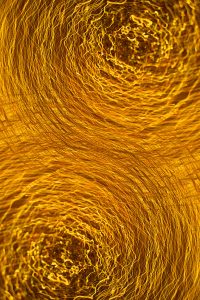The Secret Life of Varicoceles

What’s squishy, worm-like, fills the space in the scrotum above your left testicle, can ache after a run and wreak havoc on your fertility? No it’s not your Johnson; it’s a varicocele. A very-what? A vari-ko-seal.
As someone who spends his entire day doing “below the belt” medicine, I’ve seen literally thousands of varicoceles. They’re one of the most common things I find when examining men — and thankfully, one of the most fixable. But unless you’ve had one, chances are you’ve never even heard of it. So let’s break it down.
What is a Varicocele?
Varicoceles are dilated, tortuous veins that drain the testosterone-rich blood from the testicles. They come in three sizes: small, medium and large, and they are diagnosed on physical examination, generally by a specialist.
Varicoceles exist when blood travels in the wrong direction through these veins. Normally, blood leaves the testicle and travels uphill to drain to the upper back, near the kidney. This is a long way to go, and it’s all uphill. Since we stand as a species, good ole gravity, clearly our enemy as we age, pulls the blood back down the veins and causes it to pool around the testicle.
Developing at puberty in active boys, varicoceles are an evolutionary consequence of man’s upright posture. Our quadruped ancestors and pets do not get them. They are common, occurring in 1 out of every 6 adult men, and are generally nothing to worry about as they are often asymptomatic.
Why Do Varicoceles Matter?
The fact is, though, that varicoceles are not always innocent. In an odd way, they remind me of my dog Pretzel (my daughter named him). He will sit at your side all day when you’re home but will grab that half-eaten burger off the table as soon as nobody’s looking. Although varicoceles don’t cause cancer, they can hurt, and they can lead to male infertility.
In addition, more recent studies have shown that varicoceles are linked to lower serum testosterone levels and fixing them can improve testosterone balance. Whether it’s due to impaired blood flow, oxidative stress, or heat stress, varicoceles compromise the ability of the testicle to make testosterone. For men dealing with fatigue, low libido, or decreased muscle mass, this hidden culprit might be worth exploring.
The discomfort or pain they cause is also due to gravity. It is usually mild and is worsened with physical activity. This discomfort can be relieved by lying down, which neutralizes the effect of gravity. So, while men may have varicocele pain after a long day of standing, it never hurts in the morning upon awakening. Patients describe the ache as “a warm sack of soft rope,” “a congested, heaviness down there,” or “a dull pressure whenever I’m on my feet too long.” It’s not the kind of pain that makes you sprint to the ER — but it is the kind that wears you down over time.
Varicoceles’ role in male infertility actually dates back to the 1st century AD. Celsus, a Greek physician, described them in De Medicina: “The veins are swollen and twisted over the testicle, which becomes smaller than its fellow, in as much as nutrition has become defective.” In reality, 40% of men who are having trouble conceiving their first child will have a varicocele, a rate almost three times higher than in the general population.
How varicoceles cause infertility is not entirely clear, but the most popular theory is that warm blood from the body that flows downhill into the scrotum heats up the testicles to the point that sperm production and quality are affected. Basically, the factory (testicle) is overheated, and the workers aren’t putting out as many, or as good, a product.
Away with Thee, Varicocele
Fortunately, there are several ways to treat varicoceles, and they work well to relieve the pain and improve semen quality. I typically spend an hour with the patient and an operating microscope, tying off all the enlarged veins. This stops the reverse flow of blood: elegant, simple and safe.
I perform these treatments a lot. In fact, varicocele is the single most correctable abnormality found among infertile men. Men love simple cures—and this is one of the rare times in medicine when we actually have one. Microsurgical varicocelectomy has an excellent success rate, a low complication rate, and best of all, it often restores fertility and hormonal health to normal in one fell swoop. So, if you find yourself having trouble conceiving with an abnormal semen analysis and just can’t figure out why it’s happening, schedule a consultation at The Turek Clinic in San Francisco and Los Angeles to determine if varicocele may be the problem. Call 1-888-TUREKMD.









